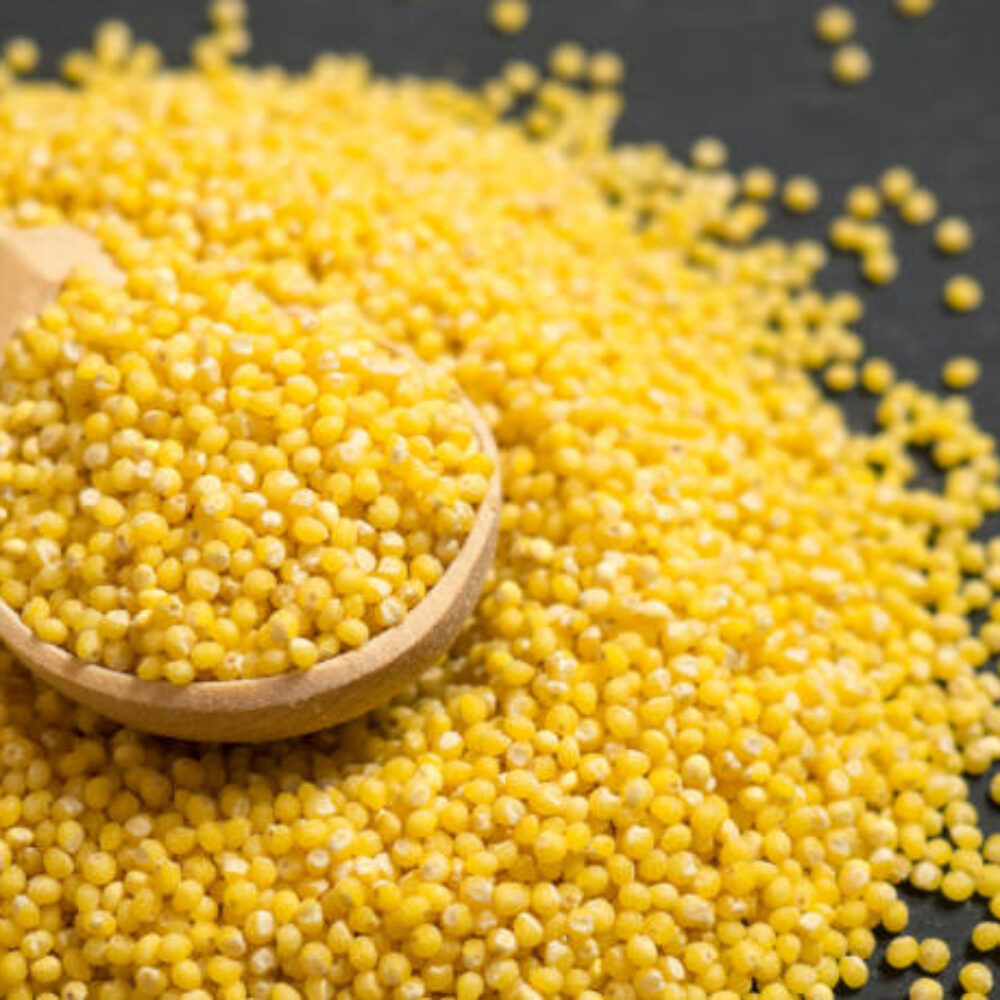Turmeric, garlic, basil, cinnamon, and ginger are the best spices for gut health. These spices also boost the immune system. Coriander, and black pepper can help fight depression.
A full stomach is good, but there is no satisfaction in anything from gas problems after eating food.
“Gastroenterologist” Kenneth Brown said that some spices work very well in solving these problems.
In a report published on Well&Good.com, they referred to these spices as ‘gut-friendly’.
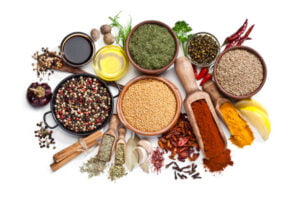
Best spices for gut health
Some spices are beneficial not only for gut health but for our overall health. Here, we share some spices that are so beneficial for our gut health.
Turmeric
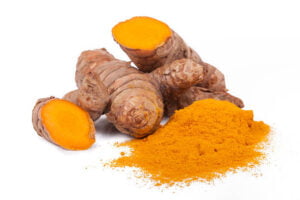
Turmeric is beneficial for reducing excess acidity, indigestion , and many digestive issues.
It is also used to stop the growth of the H. pylori bacteria, which can cause stomach ulcers and even stomach cancer.
Known as the ‘golden spice’, it is rich in curcumin, an anti-inflammatory ingredient that helps in treating depression, arthritis, and post-exercise damage.
Dr. Brown mentions this and says, “In addition, some studies have shown that turmeric plays an effective role in intestinal health. It may improve ‘Irritable Bowel Syndrome (IBS)‘.”
Turmeric is very beneficial for cuts, burns, and bruises. That is just as effective as ibuprofen.
Turmeric plays a vital role in overcoming the problem of IBS by being used in cooking or taken as a medicine.
Cinnamon
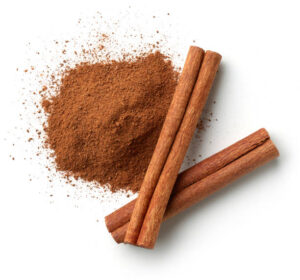
This spice can reduce any inflammation in the body. If there is any tissue damage or injury anywhere in the body, cinnamon can be beneficial.
Cinnamon plays a significant role in maintaining good intestinal health by improving digestion and reducing flatulence.
A study has shown that cinnamon is effective in controlling colon cancer. Regular consumption of cinnamon reduces the risk of colon cancer.
Ginger
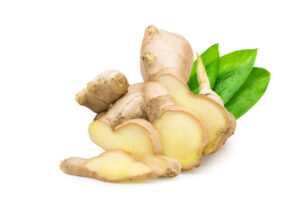
Ginger is a tropical plant that has been used in Asian cultures for thousands of years for stomach problems, diarrhea, and nausea.
In the U.S.A. it comes in a variety of convenient forms — lollipops, candies, capsules, and teas. You can also buy the dried powder of the ginger.
This spice contains ingredients that improve digestion.
Coriander
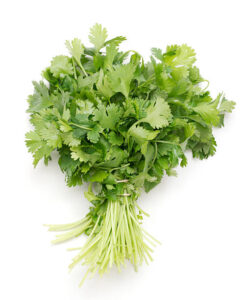
Those who have IBS-D, the oil from the seed can be more beneficial for those people. As it can help with diarrhea. It is antispasmodic, which helps relax the digestive muscles. Also, it has antioxidant properties that help protect cells from free radicals.
Cumin
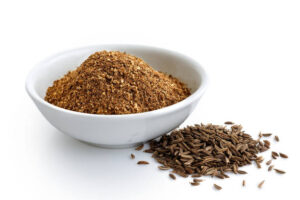
Research has shown that cumin can help with many types of digestive problems.
In one study, cumin is very beneficial for relieving irritable bowel syndrome (IBS) symptoms like belly pain, bloating, and the urgent need to go to the bathroom.
Garlic
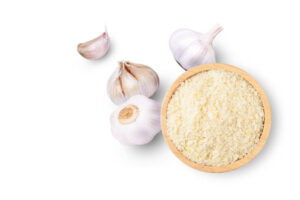
Garlic is very beneficial for heart diseases; you can eat raw garlic for heart health. It also helps lower cholesterol and blood clotting.
Garlic contains sulfur and organosulfur compounds. Garlic contains amino acids which protect our stomach from bacterial cancer.
Garlic also has antioxidant and antibiotic properties, which can cure colds and coughs. It also helps boost our immune system.
Fennel Seed
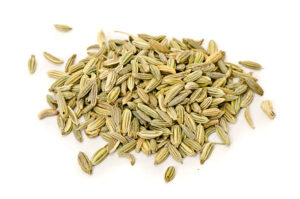
Fennel is a spice ingredient that acts as an antioxidant. It is also stomachic, antispasmodic, anti-inflammatory, antiseptic, and solves any digestive problem.
It contains vitamins and minerals like iron, potassium, copper, and magnesium. Fennel seeds increase circulation and oxygenation of the body organs as well as improve the immune system.
Clove
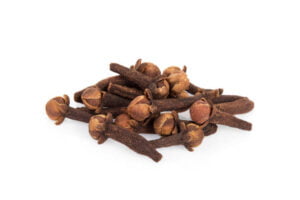
Clove is very beneficial for gut health. Consuming clove every day can increase your digestive power. Practice eating 2-3 cloves after meals.
Cardamom
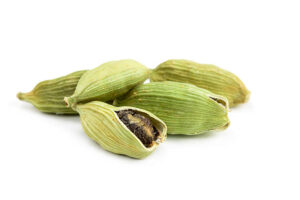
The health benefits of cardamom include improving digestion, lowering blood pressure, increasing metabolism, increasing circulation, and increasing urine output. It provides riboflavin, niacin, vitamin C, and minerals such as iron, manganese, and potassium.
Fenugreek Seeds
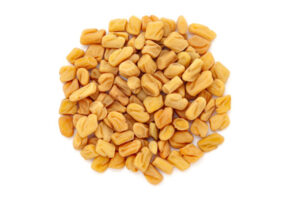
Fenugreek is one of the most popular spices in Asia. It is very effective in increasing body nutrition.
Fenugreek improves digestion, reduces constipation, lowers cholesterol levels, and regulates insulin levels. It helps manage body fluids.
Soak some fenugreek in water for the whole night and morning. Drink this water; it can improve your digestion power; it is my recommendation.
Black Cumin
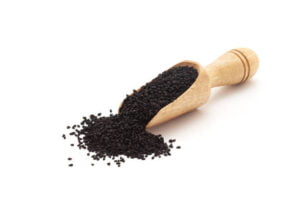
Black cumin contains a combination of various qualities. Black cumin is very beneficial for heart health. We use black cumin seeds in multiple dishes.
It helps in improving our heart health and protects our heart from various diseases. Black cumin is also widely popular for its hair benefits. It is quite effective in promoting hair growth.
Peppermint
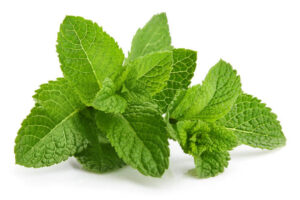
Peppermint is a best spices for gut health. Menthol is an active ingredient that provides many benefits for digestive health.
- Peppermint has antispasmodic properties that relaxe the muscles of the digestive tract. This can help with bloating, cramping and abdominal pain.
- Peppermint oil is recommended for IBS sufferers. Studies show it can reduce symptoms such as gas, diarrhea, and constipation by calming the gut muscles and reducing inflammation.
- Peppermint has mild antimicrobial properties that can help maintain a healthy gut microbiome by reducing bad bacteria without harming good gut bacteria.
- Peppermint’s aroma and taste are effective for nausea, whether it’s motion sickness, morning sickness, or digestive upset.
- Start your morning with peppermint tea. It is very beneficial for improving your digestive system.
Black pepper
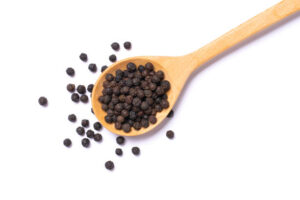
Black pepper, the “king of spices”, has many benefits for gut health due to its bioactive compound piperine.
- Piperine triggers the release of digestive enzymes in the pancreas to break down and absorb nutrients.
- Black pepper Helps maintain healthy stomach acid to digest food and prevent bloating or indigestion.
- Nutrient Absorption Piperine increases the bioavailability of vitamins, minerals and other nutrients so the gut can absorb them. It’s especially good with curcumin (in turmeric) and certain B vitamins.
- Antimicrobial Black pepper can kill harmful gut bacteria and promote beneficial microbiota for a balanced gut microbiome.
- Anti-inflammatory Piperine reduces inflammation in the gut lining to manage IBS and other inflammatory digestive disorders.
- Gut Motility Black pepper helps with bowel movements by stimulating peristalsis, the rhythmic contractions of the intestinal muscles.
You can add this to your diet by making black pepper herbal tea, using this on soup, or making the salad.
The spices we share in this article, are the best spices for gut health. However, it should be remembered that consuming only these spices cannot improve your gut health. You also need to maintain a healthy lifestyle and eat nutritious food to benefit fully.
Research On Digestive Health Benefits Of Spices
Turmeric
- Curcumin and Gut Health: Curcumin, a compound in turmeric, has been shown to have anti-inflammatory and antioxidant effects, supporting gut health and alleviating IBS symptoms.
Cinnamon
- Cinnamon and Digestion: Cinnamon’s active components, such as cinnamaldehyde, have been associated with anti-inflammatory and anticancer properties.
Ginger
- Anti-Nausea Properties: Ginger is widely known for treating nausea, vomiting, and digestive disorders.
Coriander
- Relief for IBS: Coriander is very beneficial in reducing IBS symptoms, especially diarrhea-predominant IBS (IBS-D).
Cumin
- IBS Symptom Relief: Cumin extract has been studied for its effectiveness in reducing bloating, pain, and urgency in IBS patients.
Garlic
- Antibacterial Properties: Garlic’s sulfur compounds are effective against harmful gut bacteria, improving a healthy microbiome.
Peppermint
- IBS Treatment: Peppermint oil is recommended for managing IBS due to its antispasmodic properties.
Black Pepper
- Piperine and Nutrient Absorption: Piperine improves the bioavailability of nutrients and increases digestive enzyme activity.


